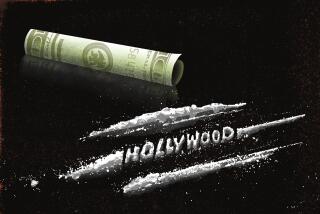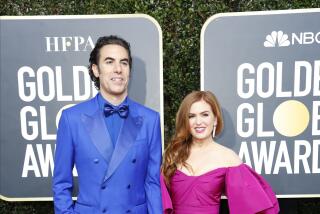‘Shockaholic’ review: Carrie Fisher’s tales electrify
Carrie Fisher has done an excellent job of reinventing herself as ... Carrie Fisher, evolving from ingenue actress and geek pinup to salty, tell-it-like-it-is writer and humorist. And as Just Carrie Fisher she has a lot to say, mostly about her odd but compelling life, and enough to add a Part 2 to her memoirs.
“Shockaholic” follows 2009’s “Wishful Drinking,” a bestseller that Fisher also turned into a one-woman show. The title is a clue to the reason Fisher says she wrote the book; a few years ago she started undergoing electroconvulsive therapy to treat depression. The treatment, formerly known as electroshock therapy, has improved since “One Flew Over the Cuckoo’s Nest” days, although it’s still controversial and typically only used when all other treatment methods have failed.
One of the side effects is memory loss, and this, Fisher tells us, is the impetus for the book — she wants to write things down before she forgets it all. And while she’s writing it down, why not publish it, since people will never tire of celebrity memoirs and Fisher is, at her core, a very good writer who’s able to keep us entertained.
Fisher deserves praise for being up front about the therapy, something scarcely talked about in polite company — although she’s certainly been open about her depression and bipolar disorder. She details the not-so-horrific treatment, from being hooked up with wires to sleeping it off at home and describes the result: “And whereas before my brain had felt as though it was set in cement, leaving me ... I don’t know ... kind of stuck, the ECT blasted my Hoover Dam head wide open, moving the immovable.”
She adds that it “punched the dark lights out of my depression” and did for her what anti-depression meds could not. But it comes at a price: her memory, what most of us take for granted until it develops cracks. Fisher says she’s on “tune-up” maintenance now, getting the therapy whenever the shadow of depression starts to darken her psyche.
With this as a jumping-off point she mines her past for engaging stories, jumping tangentially from one to another with perhaps no real plan in mind, as when friends riff off of one another’s anecdotes. We hear about Fisher’s group date with former Connecticut Sen. Chris Dodd and a pre-second-marriage Ted Kennedy in which the booze flowed and Kennedy tried to intimidate her — but, newly sober, she was up for the challenge and held her own.
About her relationship with Michael Jackson she has lots to say, and her attitude toward him seems to be part sympathy, part bemused onlooker at the questionable behavior of his hangers-on, those who wanted a little of what she calls his “shine,” that incandescent stardom.
When Jackson requests photos of her then-baby daughter Billie (with ex-husband Bryan Lourd), she finds it a bit strange, but thinks no malice lies behind it: “No one could believe,” she writes, “that he was that innocent or that his motives were innocent. But I actually did.”
Perhaps it’s because they shared that rare phenomenon of early fame that Fisher gives Jackson something of a pass for his bizarre behavior and takes to task those who may have taken advantage of him. We may never know what secrets Jackson kept, but Fisher lends an interesting, albeit gloomy insight into how ultimately lonely his life may have been.
Fisher also details how and why she decided to forge a relationship with her father, Eddie Fisher, before his death in 2010. Estranged for most of their lives, she ultimately reached out to him near the end of his life, hoping to begin to know the man who was charming, but hardly around.
She was savvy enough to understand that with absent, egocentric parents it’s often the children who have to do the outreach, and do so with no guarantee of a happy ending. She got one, though, in becoming his caretaker, his parent. That, she says, was OK.
“I became my father’s mother,” she writes. “He needed me. Finally. Somehow and happily, nothing and no one but me would do.”
By the time we get to how she and Elizabeth Taylor ultimately became chummy — and how Taylor and Fisher’s mother Debbie Reynolds made peace and became friends — you realize that these loosely woven stories about the underbelly of celebrity weren’t haphazard at all.
Ultimately the book is about being honest with yourself, living with as few regrets as possible and about making peace — with family, friends, and strangers with whom you might have had a grudge. The book is kept aloft with Fisher’s endless dry wit, although there’s a melancholy that permeates the writing (knowing what ultimately transpired with Jackson ramps up the pathos in that chapter). Fisher may be trying to remind us that taking the leap and reaching out might be worth the risk, even without a safety net.
Sure, it took Taylor throwing Fisher in a pool for those two to be pals, but all it probably cost her was a dry cleaning bill.
The first few pages of the book Fisher does a lengthy self-deprecating argument for why she’s decided to extend her memoirs. That really wasn’t necessary. If she wants to keep talking, we’ll keep listening.
More to Read
The biggest entertainment stories
Get our big stories about Hollywood, film, television, music, arts, culture and more right in your inbox as soon as they publish.
You may occasionally receive promotional content from the Los Angeles Times.






